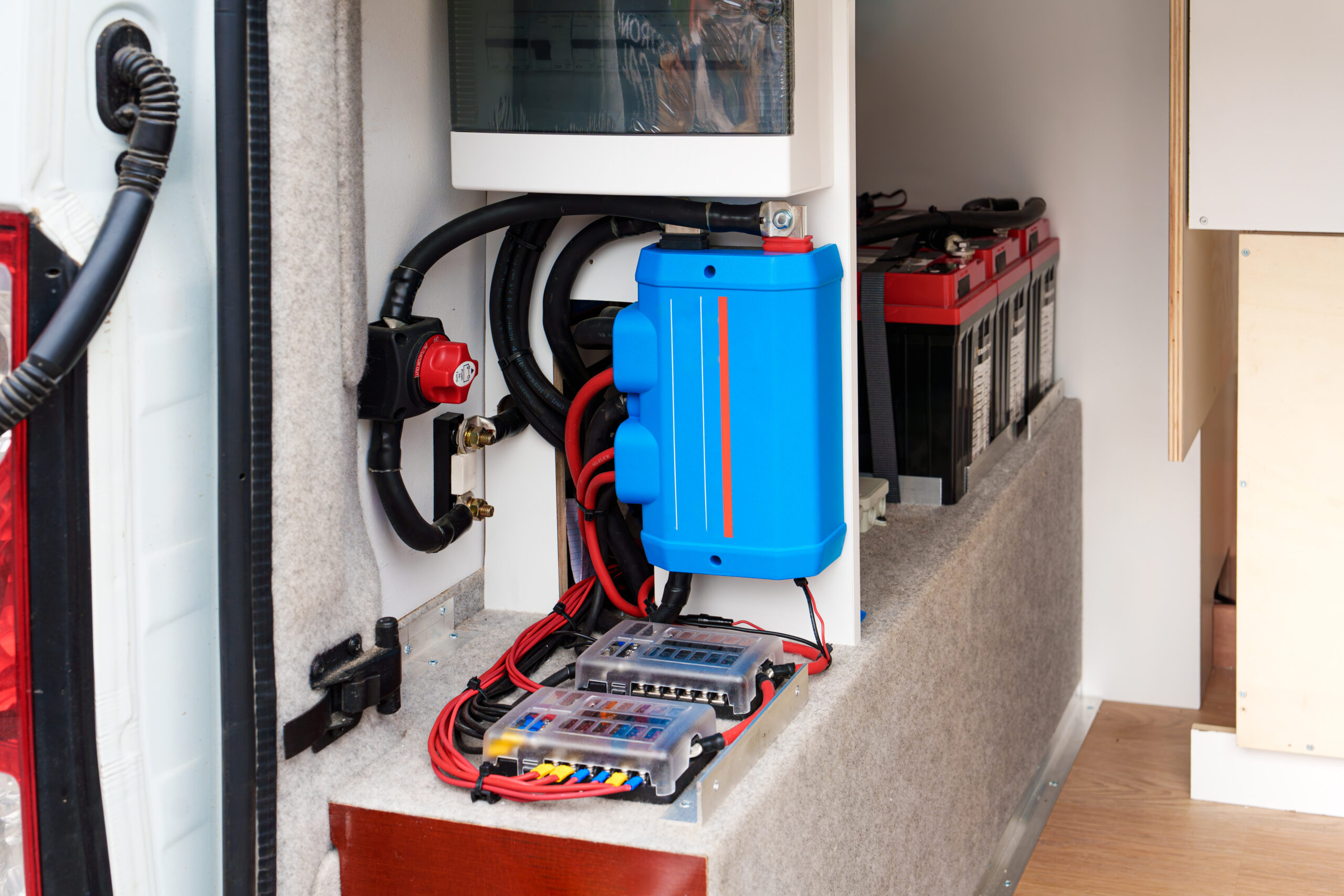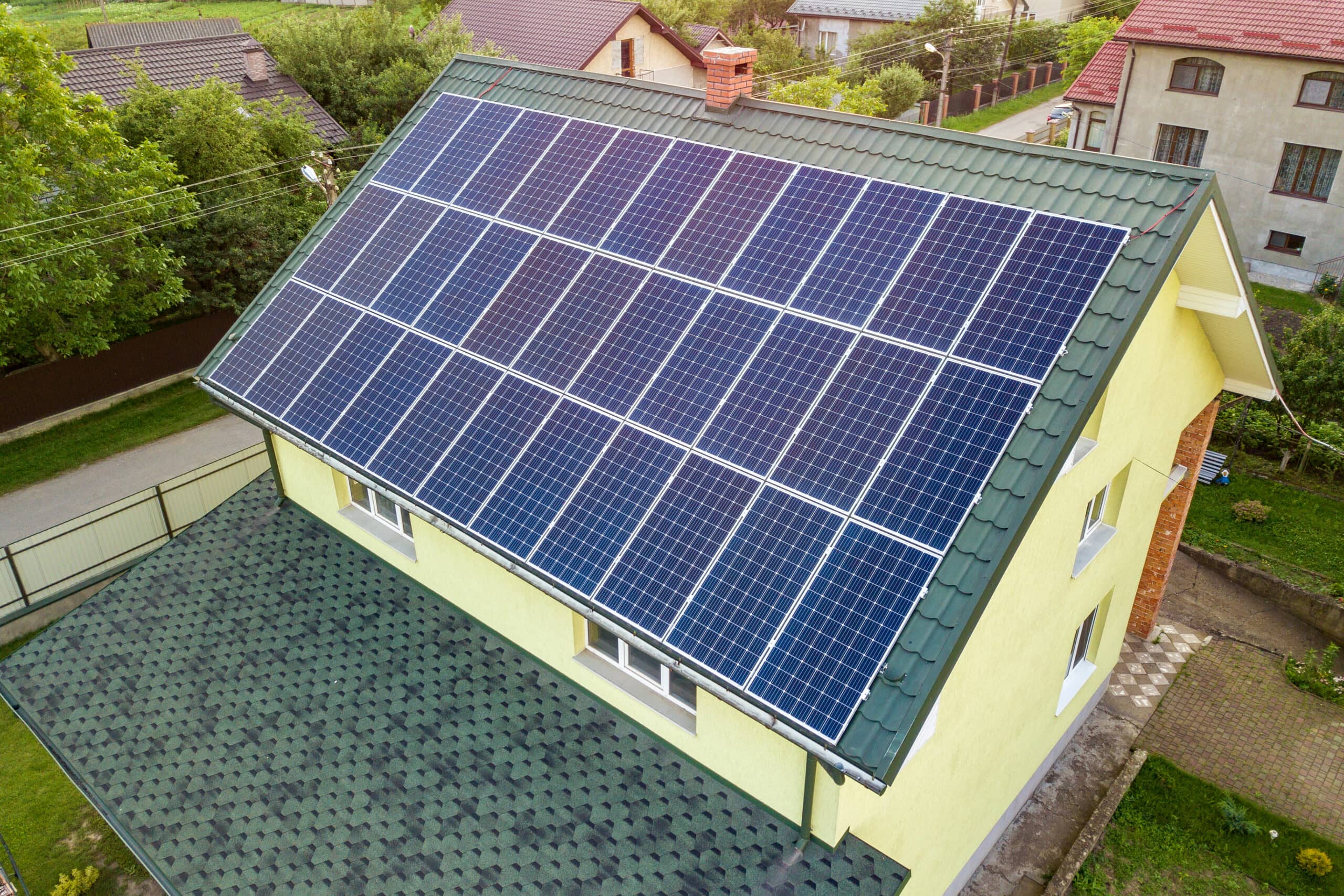Solar inverter batteries play a crucial role in today’s quest for energy savings and independence. As renewable energy sources like solar power become increasingly popular, the efficiency and longevity of solar Inverter batteries are vital considerations. As the world shifts towards cleaner energy solutions, understanding the intricacies of solar battery lifespan becomes increasingly critical for homeowners and businesses alike. This knowledge not only aids in making informed decisions but also contributes to a more sustainable and resilient energy future. In this article, we will explore the factors that influence the lifespan of solar Inverter batteries, strategies to maximize their durability, and advancements in storage technologies. By understanding these aspects, we can harness the full potential of solar energy and pave the way towards a sustainable future.
Lithium-ion batteries’ high energy density is a crucial advantage in residential settings. Energy density refers to the amount of energy that can be stored in a given volume or weight of a battery. Lithium-ion batteries have a higher energy density than other battery types, allowing them to store a significant amount of energy in a compact space. This makes them ideal for home solar systems where space may be limited, as they can efficiently store a large amount of energy for later use.
Cycle life is a crucial factor in determining the lifespan of a battery. It refers to the number of charge-discharge cycles a battery can undergo before its capacity drops below a certain level. Lithium-ion batteries are known for their long cycle life, typically lasting for thousands of cycles. This extended lifespan makes them a cost-effective choice for home solar systems, as they require fewer replacements over time compared to other battery types like lead-acid batteries. Moreover, a longer cycle life means less environmental impact due to reduced frequency of battery disposal and replacement.
Lithium-ion batteries stand out for their superior energy density and cycle life performance compared to other battery technologies, such as lead-acid or nickel-cadmium batteries. These qualities make them the preferred option for residential solar energy storage systems, offering efficiency, reliability, and longevity.
One significant advantage of lithium-ion batteries for homeowners is their low maintenance requirement. Lithium-ion batteries are virtually maintenance-free, Unlike other battery types that may need regular maintenance like watering or equalizing. This translates to convenience for homeowners, as they can enjoy the benefits of solar energy storage without the hassle of frequent upkeep, saving both time and effort.
Efficient charging is essential for maximizing the performance of a solar energy storage system. Lithium-ion batteries excel in this aspect by offering fast and efficient charging capabilities. Their ability to charge quickly and effectively ensures that the energy generated by solar panels is stored efficiently for later use, optimizing the overall performance of the system and enhancing energy utilization.
Modern lithium-ion batteries are equipped with advanced safety features to ensure reliable and secure operation. These safety systems include mechanisms to prevent overcharging, over-discharging, and overheating, reducing the risk of potential safety hazards. By incorporating these safety features, lithium-ion batteries give homeowners peace of mind, knowing that their energy storage system is protected and operates safely within their homes.
Extending the lifespan of lithium-ion batteries is crucial for maximizing the investment in a solar energy storage system. Let’s delve into two key factors that contribute to prolonging the life of these batteries: maintaining Depth of Discharge (DoD) and temperature management.
Depth of Discharge (DoD) refers to the percentage of the battery’s capacity that has been discharged relative to its total capacity. The DoD has a direct impact on the lifespan of lithium-ion batteries. Keeping the DoD within optimal levels helps to extend the battery’s longevity. Energy management systems play a vital role in regulating the DoD by monitoring and controlling the depth to which the battery is discharged. Homeowners can effectively preserve the battery’s health and maximize its lifespan by maintaining the DoD within recommended limits.
Temperature significantly influences the performance and lifespan of lithium-ion batteries. High temperatures can accelerate degradation and reduce the battery’s lifespan, while low temperatures can affect its efficiency and overall performance. Extreme temperatures, whether hot or cold, can lead to increased internal resistance, reduced capacity, and ultimately shorten the battery’s usable life. To ensure optimal battery health, it’s essential to implement strategies for temperature management. This includes maintaining the battery within the recommended operating temperature range, providing adequate ventilation to dissipate heat, and utilizing temperature control systems to regulate the battery’s temperature effectively.
Preventing overcharging is crucial to safeguard the health and longevity of lithium-ion batteries in solar energy storage systems. Overcharging poses risks such as accelerated degradation, reduced battery capacity, and potential safety hazards. Implementing solutions like smart solar charge controllers can help mitigate these risks by regulating the charging process and preventing overcharging.
Managing energy load effectively is essential for optimizing energy consumption and storage in solar energy systems. Smart home energy systems allow homeowners to monitor and control their energy usage in real-time, ensuring energy is consumed efficiently and stored effectively. These systems enable users to schedule energy-intensive tasks during periods of high solar generation, maximizing the utilization of renewable energy and reducing reliance on the grid.
By integrating smart home energy systems into their solar energy setups, homeowners can achieve optimal energy management, enhance energy efficiency, and prolong the lifespan of their lithium-ion batteries. These systems empower users to make informed decisions about their energy usage, ultimately leading to cost savings and environmental benefits.
Due to their reliability and cost-effectiveness, lead-acid batteries are often preferred for smaller or off-grid systems. These batteries require regular maintenance, such as checking water levels and ensuring proper ventilation, to maintain their performance. While lead-acid batteries have a shorter lifespan compared to lithium-ion, they offer a more budget-friendly option for certain applications.
On the other hand, nickel-based batteries, like nickel-cadmium or nickel-metal hydride, are known for their suitability in high-temperature environments. These batteries can withstand elevated temperatures better than some other types, making them a good choice for specific scenarios. Regarding efficiency, nickel-based batteries are comparable to lithium-ion but may have different cost considerations based on the particular application and requirements.
Flow batteries are rechargeable batteries that store energy in chemical fluids contained in external tanks. These batteries work by flowing electrolytes through a membrane to generate electricity. Flow battery technology offers advantages such as scalability, long cycle life, and the ability to decouple power and energy capacity.
Currently, flow batteries are widely used in grid-scale storage systems due to their ability to store large amounts of energy efficiently. These batteries play a crucial role in stabilizing the grid, managing peak demand, and integrating renewable energy sources. In the future, flow batteries can be utilized in residential applications, especially as energy storage solutions become more critical for homeowners looking to optimize their energy usage, increase self-sufficiency, and reduce electricity costs.
Considering the factors affecting solar battery lifespan, proper maintenance, depth of discharge, temperature management, and charging practices significantly influence how long a solar battery will last. Choosing the right battery type that aligns with your energy needs and system requirements is crucial for maximizing the lifespan and performance of your solar energy storage setup.
Moreover, regular maintenance, such as monitoring and adjusting charging parameters, ensuring proper ventilation, and conducting routine inspections, can help extend the life of your solar Inverter batteries. By selecting the appropriate battery type and adhering to maintenance best practices, homeowners can optimize the efficiency and longevity of their solar energy storage systems.
When considering solar energy use, it’s important to explore all available options and technologies to make an informed decision that suits your specific needs. By evaluating different battery types, such as lead-acid, nickel-based, and flow batteries, homeowners can find the best fit for their residential solar energy storage requirements. Embracing a comprehensive approach to solar energy utilization can lead to enhanced energy efficiency, cost savings, and sustainability in the long run.
What are you waiting for? Start exploring the possibilities of solar energy storage and find the perfect battery type for your needs! Let’s make your solar energy journey a bright and sustainable one!




